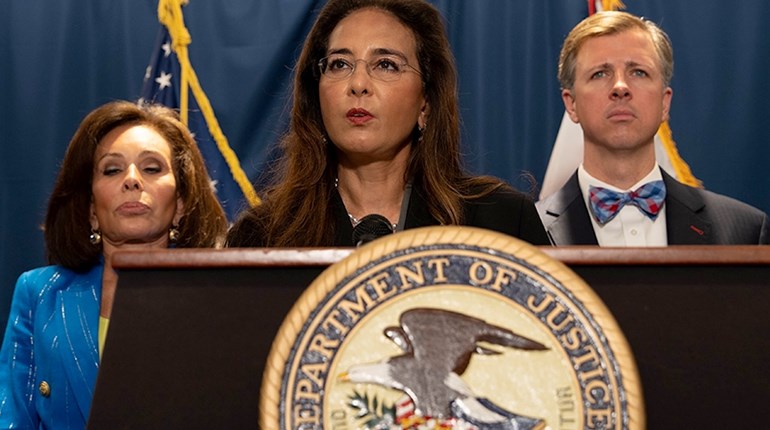
It’s time for the election of 2023: The one that could get away if freedom-loving voters don’t pay close enough attention.
Given the relentless pace of our politics, and the irresistible pull of the national controversies that are generated by Washington, D.C., it can be tempting for Americans to ignore what is happening in states other than their own—especially in an off-cycle year such as 2023. But this, as ever, would a mistake.
Already, the effects of the off-year elections are being seen in Louisiana, where Attorney General Jeff Landry (R) will become the next governor of the Bayou State. He has promised to make the state the 28th to adopt constitutional carry after incumbent Gov. John Bel Edwards (D), who is term limited, previously vetoed a constitutional-carry bill that had overwhelming support from the state’s legislature.
Unlike in most other states, Louisiana does not have a strong tradition of legislatures overriding vetoes, and, as a result, the bill died, which left Louisiana as the only state in the region that has held onto its permitting regime. (Alabama, Arkansas, Florida, Georgia, Kansas, Mississippi, Missouri, Oklahoma, Tennessee and Texas now all have permitless carry).
Kentucky
In Kentucky, Gov. Andy Beshear, a Democrat, has made it clear over the last few years that he would very much like to sign some stricter gun-control measures—including a broad red-flag law—but that the state legislature has thus far resolved to stand in the way.
“Any changes in access to firearms would require a legislative act in Kentucky,” said Beshear in May of 2022. “That would have to be a conversation that legislative leadership would entertain and in recent years, they haven’t entertained any.”
Hopefully, the legislature’s resolve will hold. But if voters in the Bluegrass State want to make perfectly sure that there is no risk of any backsliding, they will have the chance to replace Beshear with a governor who is also opposed to entertaining restrictions on the right to keep and bear arms.
New Jersey
And then there is New Jersey, which, under the stewardship of Gov. Phil Murphy (D), has turned itself into ground zero in the gun-control movement’s fight against the Supreme Court’s seminal Bruen (2022) decision.
Since Bruen was handed down, New Jersey has tried to pass laws that require gun owners to obtain liability insurance, that require applicants for firearms permits to attend an in-person “character” interview and that make carrying on private property presumptively illegal until the property owner explicitly says otherwise—all of which are unconstitutional.
Add these new provocations to New Jersey’s existing set of laws—which are arguably the worst of any state in the union—and you are looking at a state that, as a matter of deliberate policy, is in open rebellion against the Second Amendment. A palatable outcome to these attempts would be for New Jersey to keep trying these restrictions and for the judiciary to keep knocking them down. A much better outcome would be for the architects of New Jersey’s defiance to lose their jobs.
Is that possible? Not for all of them, no. Could some of them be removed? Yes. Republicans are currently in their best position in New Jersey in 20 years, and this year’s vote will be the first to be conducted under a set of redrawn district boundaries that has made many elected Democrats more vulnerable than they previously were. To obtain a majority in the Assembly, Republicans would need to win six more seats. To obtain a majority in the Senate, Republicans would need to win five more seats. Because there is no concurrent governor’s race—or anything else beyond the legislative contests—this year’s turnout is likely to be the lowest since 2011, when just 27% of registered voters showed up.
According to Ben Dworkin, the director of the Rowan Institute for Public Policy and Citizenship at Rowan University, this is likely to mean that “small groups can have an outsized influence.” “If you can motivate a small group,” Dworkin told NJ Spotlight News, “it can make the difference. The close races are going to be decided by 500 or 1,000 votes.”
Indeed.
Other Races
In addition to these gubernatorial and legislative races, three states will stage elections for attorney general. In Kentucky and Louisiana, the incumbents are stepped down in order to pursue gubernatorial runs. In Mississippi, the incumbent is running for re-election. Currently, all three positions are filled by pro-Second Amendment figures. Given the crucial role that attorneys general play in interpreting and enforcing the law, it would behoove advocates of the right to keep and bear arms to ensure that this remains the case.
As for that other election—the one next November? Well, there’s a lot to be optimistic about at the moment. A total of 27 states have now abolished their concealed-carry permitting requirement, up from just two states 20 years ago. Polling shows that support for stricter gun-control measures continues to drop. The number of gun-owners is still growing, with dramatic increases among African-Americans, Hispanics and Asians; women make up one-third of all first-time gun buyers; and, as a recent study revealed, because Americans are less likely to tell strangers that they own firearms, existing gun-ownership rates are likely higher than previously believed.
But momentum is a real thing in politics, and, especially in national elections, politicians follow trends. It would be nice if our elected officials did not need to be constantly cajoled into upholding their oaths, but ... well, our elected officials need to be constantly cajoled into upholding their oaths, which is one big reason why the NRA is so important.
If, this November, America’s Second Amendment voters are able to show the country that they remain a force to be reckoned with, candidates will be less likely to cross them in the future. Think of it as a down-payment—on next year’s extravaganza, and beyond.


































